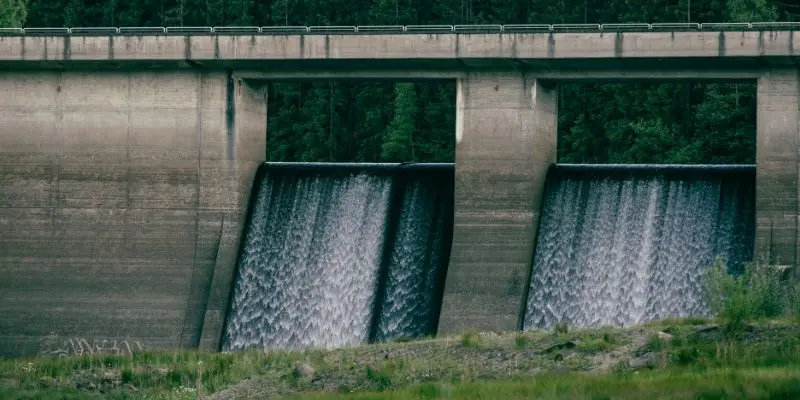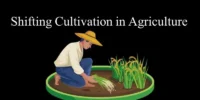“Smart Water Conservation in Farming for a Better Future”
Published: 19 Mar 2025

Smart water conservation in farming is the key to ensuring that agriculture can thrive in the face of water scarcity and environmental challenges. With the growing global population and the unpredictable effects of climate change, using water efficiently has never been more critical. By implementing innovative water-saving practices, farmers can secure better yields, protect our natural water resources, and pave the way for a sustainable agricultural future.
So, guys, without wasting time, let’s jump into the article “Smart Water Conservation in Farming for a Better Future”
Key Points on Smart Water Conservation:
- Drip Irrigation:
- Rainwater Harvesting:
- Soil Moisture Management:
- Drought-Resistant Crops:
- Precision Irrigation
- Water-Efficient Crops:
- Reducing Water Waste:
- Sustainable Land Management:
Briefly Explain all Factor
These strategies are essential for making farming more water-efficient, helping farmers deal with water shortages and ensuring farming can continue sustainably in the future.
1. Drip Irrigation
Drip irrigation delivers water directly to plant roots, ensuring that water is absorbed by the plants instead of being lost to evaporation. This method maximizes water efficiency and reduces water waste by applying water exactly where it’s needed.
- Delivers water directly to plant roots, minimizing evaporation.
- Reduces water runoff, ensuring efficient use.
- Targets specific areas that need water, conserving resources.
- Can be automated for consistent, precise watering.
- Minimizes soil erosion compared to traditional methods.

2. Rainwater Harvesting
Rainwater harvesting involves capturing and storing rainwater for irrigation, reducing reliance on external water sources. This method can provide a sustainable, low-cost solution to water scarcity, especially during dry seasons.
- Collects and stores rainwater for irrigation use.
- Reduces reliance on municipal or groundwater sources.
- Provides a sustainable alternative during dry periods.
- Can lower water costs for farmers by using free, natural rainfall.
- Helps conserve local freshwater reserves.

3. Soil Moisture Management
Soil moisture management techniques, such as mulching, help retain moisture in the soil. These practices reduce the need for frequent irrigation, saving water while improving soil health and crop growth.
- Uses mulching to prevent moisture evaporation.
- Enhances soil’s ability to retain water.
- Promotes deeper root growth for better water access.
- Reduces irrigation frequency, conserving water.
- Improves soil health by reducing compaction.
4. Drought-Resistant Crops
Drought-resistant crops are designed to thrive in dry conditions with minimal water. These crops help farmers maintain production in areas with limited water, ensuring food security in challenging climates.

- Require less water to grow, thriving in dry conditions.
- Improve food security in areas with limited water resources.
- Provide farmers with more reliable yields in drought-prone areas.
- Use biotechnology to enhance resilience to water stress.
- Help reduce water consumption while maintaining high productivity.
5. Precision Irrigation
Precision irrigation uses advanced technology to adjust water delivery based on real-time data about weather conditions and soil moisture. This ensures crops receive the exact amount of water they need, minimizing waste and improving efficiency.
- Uses technology to monitor soil moisture and weather patterns.
- Delivers the exact amount of water needed, reducing waste.
- Customizes irrigation schedules based on real-time data.
- Ensures that water is applied only when necessary, improving efficiency.
- Prevents over-watering or under-watering, saving water.
6. Water-Efficient Crops
Water-efficient crops are genetically engineered to use less water while providing high yields. These crops help farmers adapt to water scarcity, increasing food production without further depleting freshwater resources.

- Genetically engineered to need less water for growth.
- Adapt well to dry climates with minimal irrigation.
- Produce higher yields with less water input.
- Contribute to water conservation efforts while maintaining food production.
- Reduce the strain on freshwater resources in arid areas.
7. Reducing Water Waste
Reducing water waste involves adopting technologies and practices that ensure water is used efficiently. This includes repairing leaks, optimizing irrigation schedules, and reusing water where possible to minimize wastage.
- Uses efficient irrigation systems that minimize waste.
- Detects and fixes leaks in irrigation infrastructure to avoid water loss.
- Adjusts irrigation schedules to match current weather conditions.
- Implements real-time monitoring systems for more precise water usage.
- Promotes recycling and reusing water within the farm.
8. Sustainable Land Management
Sustainable land management practices, such as crop rotation and no-till farming, improve soil health and reduce water consumption. These practices help farmers conserve water while enhancing the productivity and sustainability of their land.
- Practices like crop rotation reduce the need for excessive irrigation.
- No-till farming prevents water evaporation and enhances moisture retention.
- Improves soil structure to help better absorb and retain water.
- Prevents soil erosion, which can lead to reduced water retention.
- Uses organic methods that require less water for crop production.
Conclusion
In conclusion, adopting smart water conservation techniques in farming is key to addressing water scarcity and ensuring the long-term sustainability of agriculture. By using methods like drip irrigation, rainwater harvesting, and water-efficient crops, farmers can optimize water usage, reduce waste, and boost crop productivity. As we face growing environmental challenges, these strategies not only protect vital water resources but also contribute to a more resilient and sustainable farming future.
FAQs about Internet
Here are some of the most frequently asked questions about the “Smart Water Conservation in Farming for a Better Future”
Water conservation in farming ensures efficient water use, reduces waste, and helps maintain crop yields. It helps address water scarcity and supports sustainable agricultural practices. This is essential for long-term food security.
Drip irrigation delivers water directly to plant roots, minimizing evaporation and runoff. This targeted watering system ensures that plants receive just the right amount of water. It increases water use efficiency and reduces waste.
Rainwater harvesting involves collecting rainwater for irrigation use, reducing dependence on groundwater. It helps supplement water supply during dry seasons. This practice conserves freshwater and supports sustainable farming.
Drought-resistant crops are designed to thrive in water-scarce conditions, requiring less water for growth. They help farmers maintain crop production in drought-prone areas. These crops contribute to better food security during water shortages.
Soil moisture management, like mulching, helps retain moisture in the soil and reduces evaporation. It improves soil health and reduces the frequency of irrigation. These techniques ensure that water is used efficiently in farming.

- Be Respectful
- Stay Relevant
- Stay Positive
- True Feedback
- Encourage Discussion
- Avoid Spamming
- No Fake News
- Don't Copy-Paste
- No Personal Attacks

- Be Respectful
- Stay Relevant
- Stay Positive
- True Feedback
- Encourage Discussion
- Avoid Spamming
- No Fake News
- Don't Copy-Paste
- No Personal Attacks





